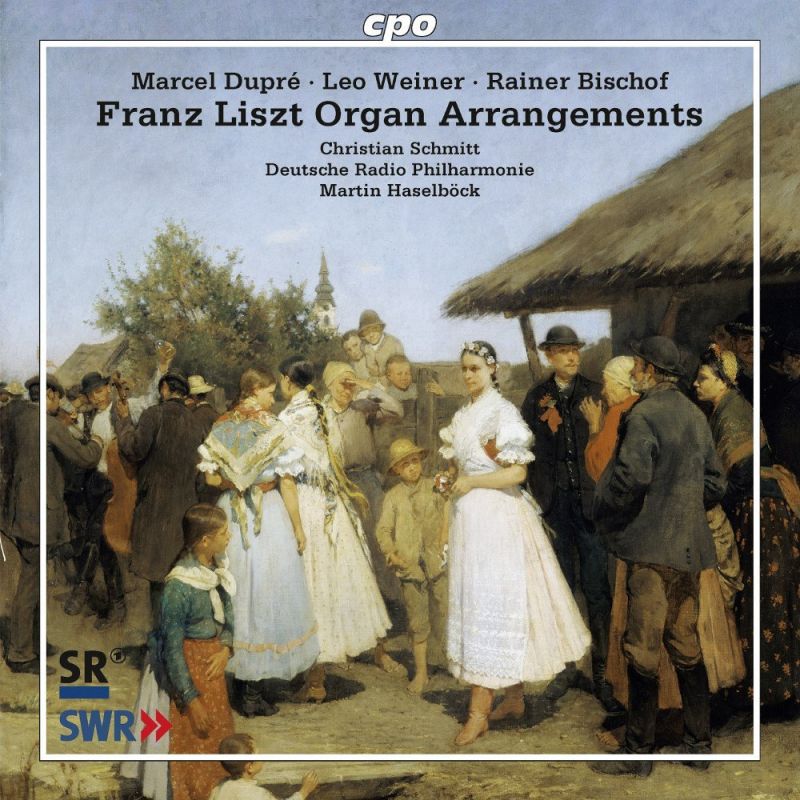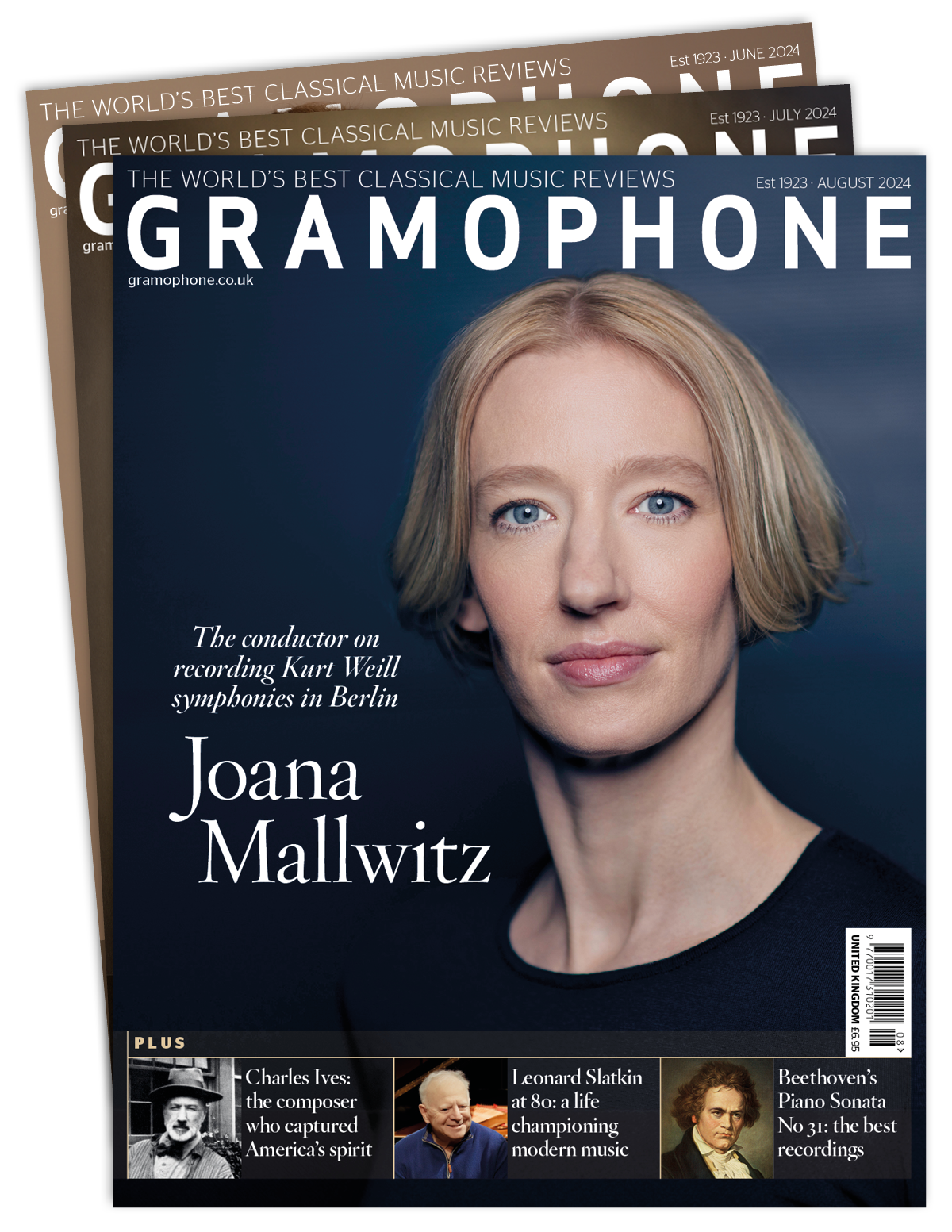LISZT Ad nos, ad salutarem undam
View record and artist detailsRecord and Artist Details
Composer or Director: Franz Liszt
Genre:
Orchestral
Label: CPO
Magazine Review Date: 03/2014
Media Format: Super Audio CD
Media Runtime: 70
Mastering:
DDD
Catalogue Number: CPO777 472-2

Tracks:
| Composition | Artist Credit |
|---|---|
| Fantasie and Fugue on Ad nos, ad salutarem undam ( |
Franz Liszt, Composer
Christian Schmitt, Organ Franz Liszt, Composer German Radio Philharmonic Orchestra Saarbrücken Kaiserslautern Martin Haselböck, Conductor |
| Orpheus |
Franz Liszt, Composer
Christian Schmitt, Organ Franz Liszt, Composer |
| Fantasia and Fugue on the theme B-A-C-H |
Franz Liszt, Composer
Franz Liszt, Composer German Radio Philharmonic Orchestra Saarbrücken Kaiserslautern Martin Haselböck, Conductor |
| Variations on 'Weinen, Klagen, Sorgen, Zagen' (Bach) |
Franz Liszt, Composer
Franz Liszt, Composer German Radio Philharmonic Orchestra Saarbrücken Kaiserslautern Martin Haselböck, Conductor |
Author: Jeremy Nicholas
If you had never heard Liszt’s original, you would think this was it, for Ad nos seems tailor-made for Dupré’s resourceful orchestration. Pedal lines (often woolly in a cathedral acoustic) are given clear definition, with woodwind and brass subtly aiding phrasing, both elements contributing to a genuine dialogue between organ and orchestra. There is one moment – I shan’t spoil it for you – which will make you jump out of your skin. The recording is top-drawer, accommodating the huge sonority produced when Dupré combines the full organ with most of what the modern orchestra can muster. It has a natural clarity and presence despite the unnaturally spotlit flute solo at 12'50" et seq. Martin Haselböck marshals his forces and the excellent Christian Schmitt at the Luxembourg Philharmonie’s impressive Karl Schuke organ into a thrilling and rewarding experience. I suspect – and hope – that we shall be hearing a lot more of the Liszt-Dupré Ad nos in the future, perhaps as an alternative to Saint-Saëns’s Organ Symphony.
After this work for organ and orchestra are two works for organ arranged for orchestra, punctuated by one work for orchestra arranged for organ. Weinen, Klagen, Sorgen, Zagen (based on a theme from the first movement of Bach’s Cantata No 12 and the ‘Crucifixus’ from the Mass in B minor) is heard in an orchestration by the Hungarian Leó Weiner (1885-1960) executed, in Haselböck’s opinion, ‘just as Liszt himself would have done it’. The arrangement of the Prelude and Fugue on B-A-C-H, on the other hand, by the Austrian Rainer Bischof (b1947), though still largely typical of Liszt, includes parts for vibraphone and woodblock. These are impressive performances; but while Liszt’s organ conceptions seems to lend themselves to such colourful and imaginative treatments, I can’t say they overwhelm in the same way that a performance on a great cathedral organ does (or, indeed, by a great pianist – Liszt made piano versions of both works). Completing the disc is Liszt’s own organ version of his tone-poem Orpheus which, as the discursive booklet-notes say, benefits from an organ that ‘has been designed in the French and German traditions and thus enables an optimal registration of the Liszt works recorded here’. A super disc.
Explore the world’s largest classical music catalogue on Apple Music Classical.
Included with an Apple Music subscription. Download now.

Gramophone Digital Club
- Digital Edition
- Digital Archive
- Reviews Database
- Full website access
From £8.75 / month
Subscribe
Gramophone Full Club
- Print Edition
- Digital Edition
- Digital Archive
- Reviews Database
- Full website access
From £11.00 / month
Subscribe
If you are a library, university or other organisation that would be interested in an institutional subscription to Gramophone please click here for further information.




